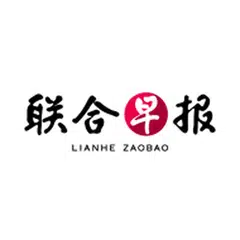Celebrities scrubbed from the Chinese internet: Victims of China's social revolution?
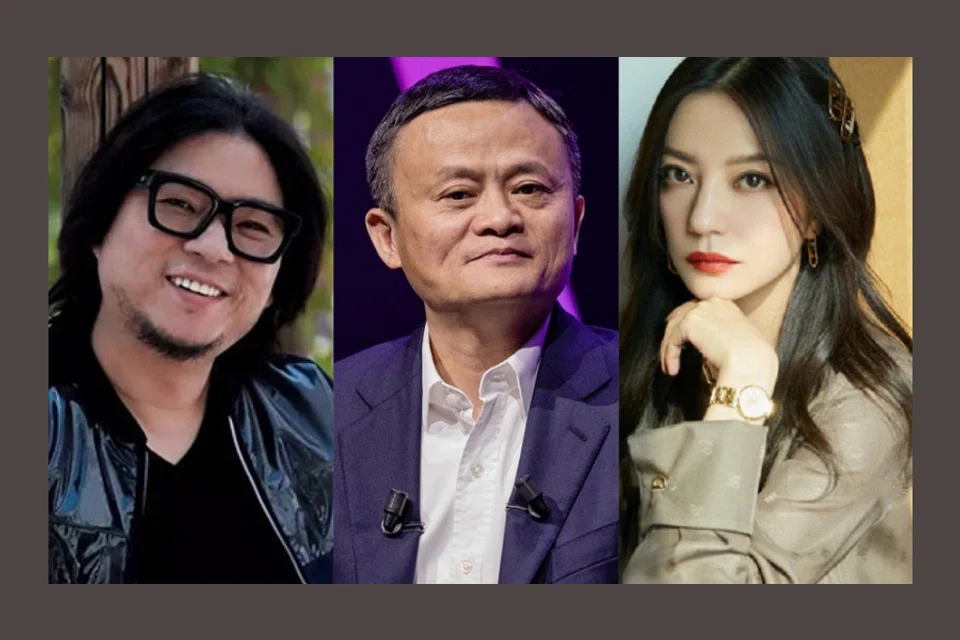
Recently, Chinese netizens are asking: What happened to Gao Xiaosong and Vicki Zhao Wei?
Last week, any mention of Zhao, a Chinese actress who shot to fame for her role as Xiao Yanzi (小燕子, Little Swallow) in hit TV series My Fair Princess (《还珠格格》), was scrubbed from the entire Chinese internet. Zhao's whereabouts has since been unknown.
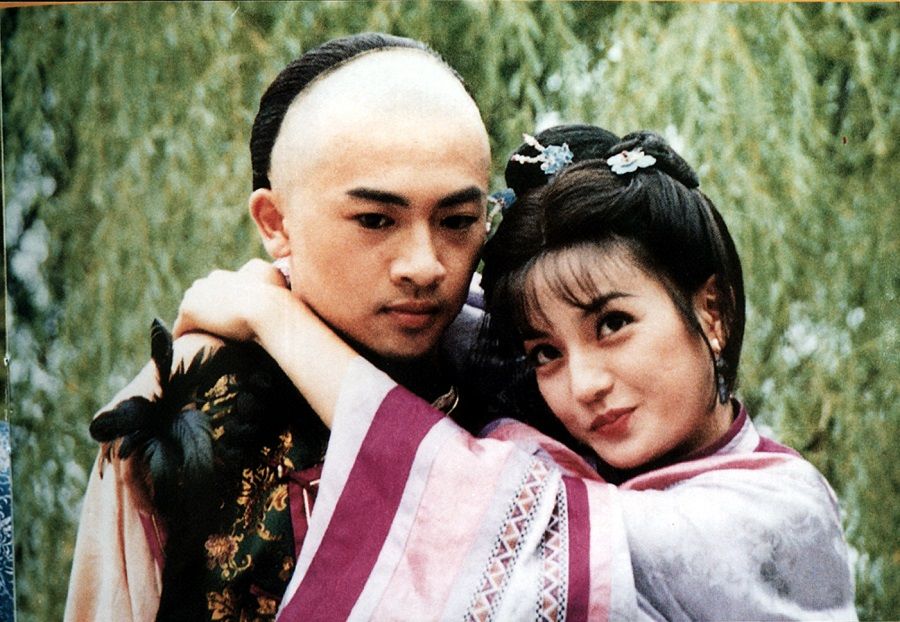
Meanwhile, Chinese pop culture icon Gao, who is among a group of verified Weibo personalities with a large following known as the "Big Vs" (大V), was also targeted. Traces of his songs and other work have been removed from the internet. His Xiaosong Library in Beijing has also been temporarily closed since 28 August. The Chinese Academy of History under the Chinese Academy of Social Sciences published a lengthy article that same day, harshly criticising Gao as smuggling in "historical nihilism" under the guise of interpreting history.
The article also listed the "seven deadly sins" of Gao: 1) white-washing historical figures He Yingqin and Chiang Kai-shek and referring to them as firmly belonging to the anti-Japanese camp; 2) falsely claiming that the Mukden incident happened because of warlord Zhang Xueliang and denying the justice of the Xi'an Incident; 3) visiting the Yasukuni Shrine and evoking the "dead soul" of Japanese militarism; 4) defaming historical figure Zheng Chenggong (Koxinga) as a "big Japanese pirate (大倭寇)"; 5) passionately praising the US and flattering India because they are said to be "democratic"; 6) comparing the People's Liberation Army to the the paramilitary organisation SS (Schutzstaffel) under Nazi Germany; and 7) making countless ridiculous remarks.
Gao, Zhao and Alibaba
Similarly involving historical issues, Zhao was also embroiled in controversy for wearing a dress featuring a Japanese military flag in 2001. But the more attention-grabbing similarity between Zhao and Gao is that they are both involved with Alibaba.
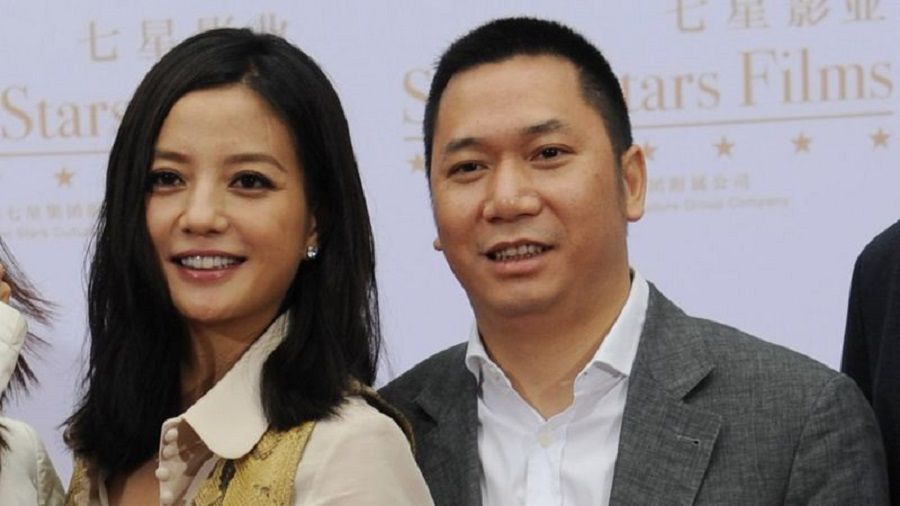
It was reported that Zhao and her husband Huang Youlong made their foray into the capital market in December 2014 and became the second-largest shareholder of Alibaba Pictures. Back then, because Zhao owned shares in Alibaba Pictures, the couple's net worth skyrocketed by over HK$4 billion within a short period of time and they earned a net profit of HK$1 billion after a successful cash out. This investment was known as one of Zhao's most successful performances as a female "stock god" in the entertainment industry. Apart from this, it was also alleged that Zhao holds shares in Ant Group under the name of her mother.
When the book Jinguan Ma Yun (《近观马云》, A Closer Look at Ma Yun) was published in 2014, Zhao was one of the 12 co-authors of the book, demonstrating the close relationship she shares with Ma. However, Ma tried to dissociate himself from Zhao when he was interviewed by The Beijing News in 2017. He claimed that he had seen Zhao less than ten times, and five of those occasions were charity events. "I wonder why we are being linked to each other. This I do not understand," he said.
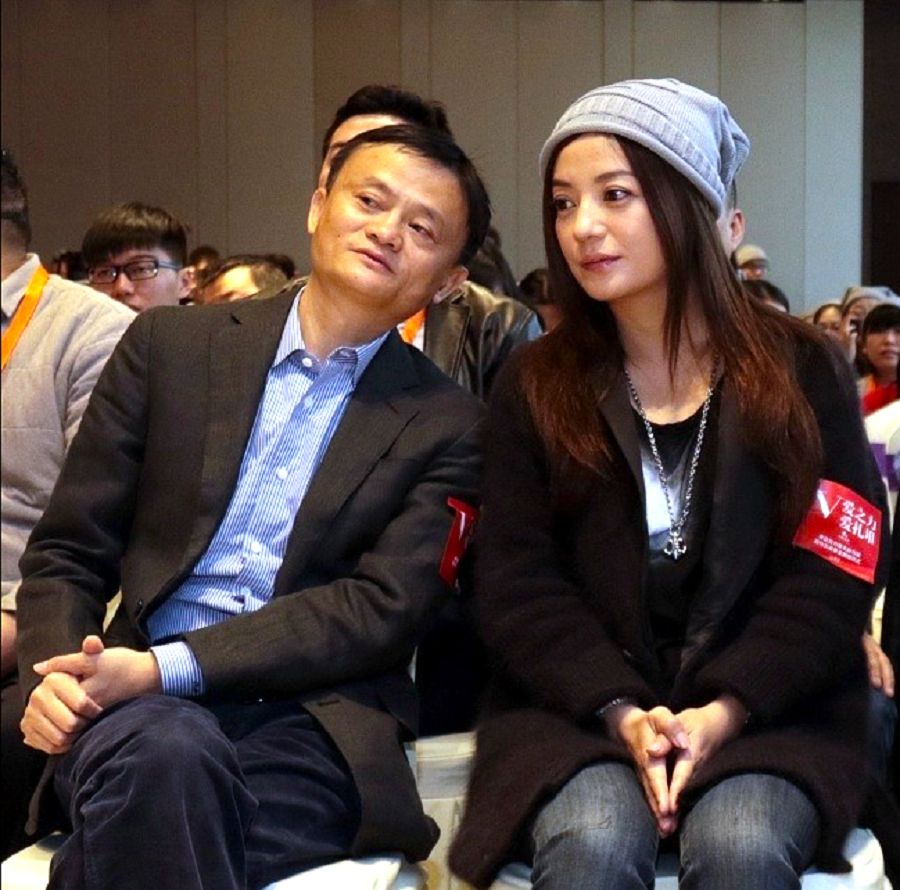
Gao is passionate about engaging with Ma?
Gao, who is a musician, songwriter, music producer, director, and talk show host also has a history with Alibaba and Ma.
In 2015, Gao was the chairman of Alibaba Music before transferring to become chairman of Alibaba Entertainment Strategic Committee later on, where he focused on international expansion. It was reported that Gao's annual salary at Alibaba once hit 6 million RMB, but his performance at Alibaba Music was unsatisfactory because he only understood music and not business.
An online article titled "Gao Xiaosong's Five Years in Alibaba" (高晓松当阿里人的这5年) noted that when Gao was working at Alibaba, he was passionate about engaging with boss Jack Ma. Gao had met with Ma, wrote songs for him, made him a book list, accompanied him to charity events, and even wanted to be Ma's sidekick. Gao was incredibly busy then. Ma even gave Gao a nickname "Ai Dajin" (矮大紧, ai for "short", da for "big", and jin for "tight") made up of opposites to the characters and homophones forming "Gao Xiaosong" (高晓松, gao for "tall", xiao a homophone for "small", and song for "loose").
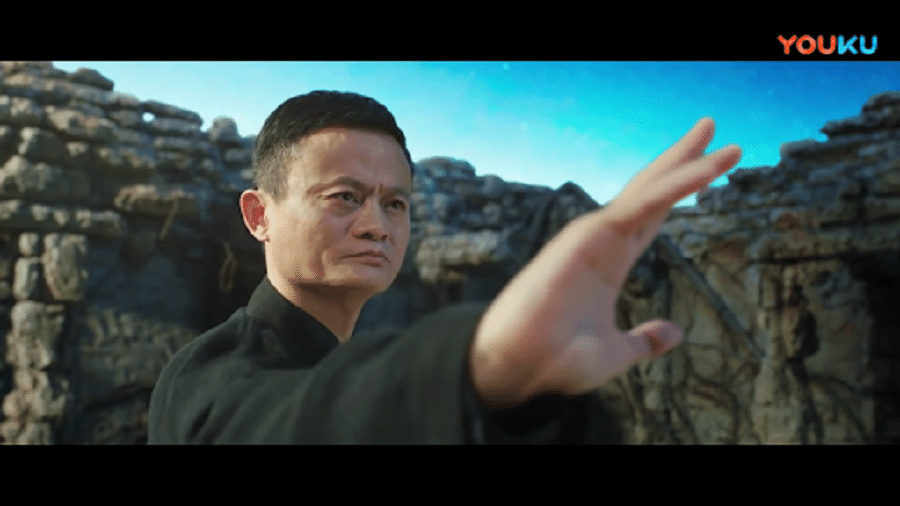
The article stated that on Singles' Day in 2017, Gao composed a theme song for Gong Shou Dao (《功守道》) , a short film that Ma starred in. He even invited pop diva Faye Wong to perform the song together with Ma. In short, Gao and Ma often appeared together and were almost inseparable. For example, Gao never failed to attend the annual Jack Ma Rural Teachers Award ceremony.
On 16 March this year, the Tianyancha app showed that Gao had resigned from his post as director of Beijing Alibaba Music. Technology Co., Ltd.
Following the erasure of Gao's works from the internet, his nationality has become widely discussed again. It was reported that Gao was born into a family of intellectuals in Beijing and holds a US green card while still keeping his Chinese nationality. However, critics of Gao call him an "American" nonetheless.
Is a deep change or revolution happening in China?
On 27 August, a commentary appeared on the WeChat account "Li Guangman's Icy-Sharp Current Affairs Commentary" (李光满冰点时评). From the micro to macro level, it linked the authorities' intervention in fandoms and actress Zheng Shuang getting fined for tax evasion, the shutout of Vicki Zhao and Gao Xiaosong, suspension of the listing of Ant Group, the 18.2 billion RMB fine on Alibaba and investigation of Didi for antitrust activities, the 100th anniversary celebrations of the Chinese Communist Party (CCP), and the CCP's idea of "common prosperity".
The article did a political analysis, coming to the conclusion that a deep change or revolution was happening in China, and it would bring about a fresh climate.
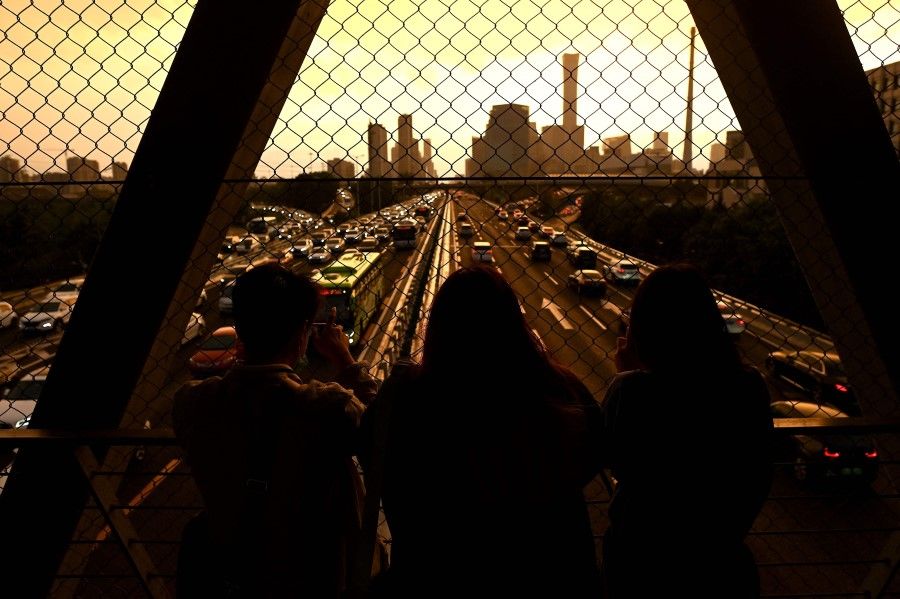
Over the past few days, this article titled "Everyone Can Feel a Deep Change" (《每个人都能感受到,一场深刻的变革正在进行!》) has been shared by state media - Xinhua, People's Daily, CNS, Guangming, the Global Times - and gained wide attention.
The article asserted that China was undergoing major changes; from the realms of economics and finance to culture and politics, a deep change or even revolution was taking place.
It said, "This is a return from capitalist groups to the people, a change from capital-centrism to people-centrism. This is a political change, and the people are once again the focus of this change."
'Everything that obstructs this people-centric change will be cast aside'
The article further said that the deep change involved a return to the CCP's founding mission, to a people-centric focus, and to the fundamentals of socialism. It warned, "Everything that obstructs this people-centric change will be cast aside."
The article reiterated the official stand of not killing off the rich to help the poor, but emphasised that China had to resolve the growing income gap and crack down on big capital manipulation of the capital market, platform monopolies, and the situation of bad money driving out good money, which have all led to chaos.
It said, "The capital market will no longer be a heaven for capitalists to become wealthy overnight; the cultural market will no longer be a heaven for pretty boy stars; the news will no longer be a vehicle for the adulation of Western culture. Back to 'red'; back to heroes; back to blood and guts."
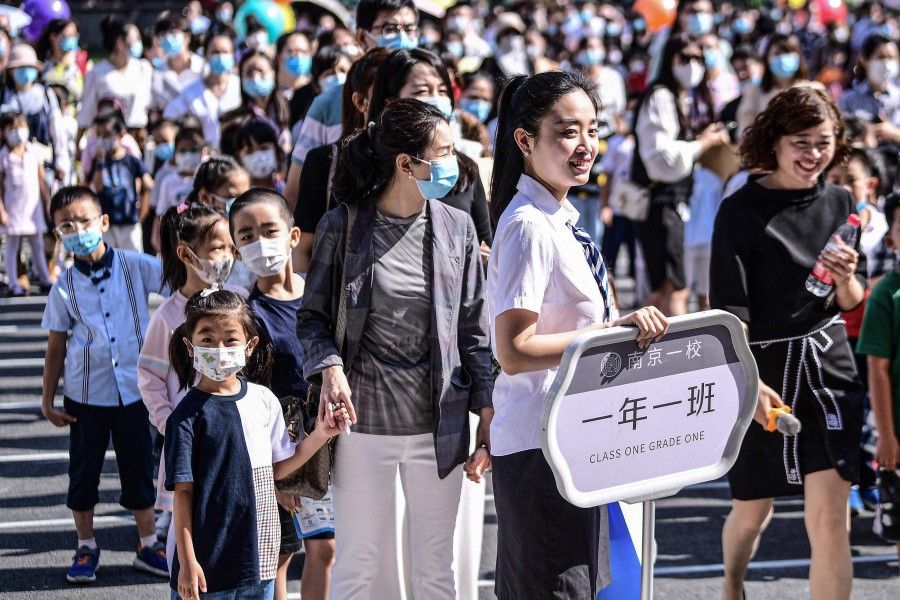
The article also said the current regulation of tutoring institutions and housing in school zones has brought the education sector back to being fair and for the masses, so that ordinary people would have upward mobility. Subsequently, there would also be the regulation of high housing and healthcare costs, so as to level the three "mountains" of education, healthcare, and housing.
Finally, the article said that the US was ramping up on mobilising China's "fifth column" to initiate a colour revolution in China, and this round of changes is in response to the US's "fierce and barbaric" attack on China that is already under way. The article said that at this time, if one had to count on major capitalists to be a bulwark against imperialism and hegemony, and the younger generation lose their strength and tenacity, then China would be like the former Soviet Union and crumble without the enemy having to attack.
Who is the writer, Li Guangman?
According to online information, Li Guangman is a columnist for cwzg.cn (察网, Chawang), a freelance writer and senior news editor. Baidu says Chawang is run by Hainan Chawang Cultural Media Limited (海南察网文化传媒有限公司), a portal mainly featuring political commentaries. The site is committed to spreading positive energy, safeguarding national interests, protecting national security, gathering patriotic energy, strengthening the patriotic line, promoting nationalism, and passing down culture.
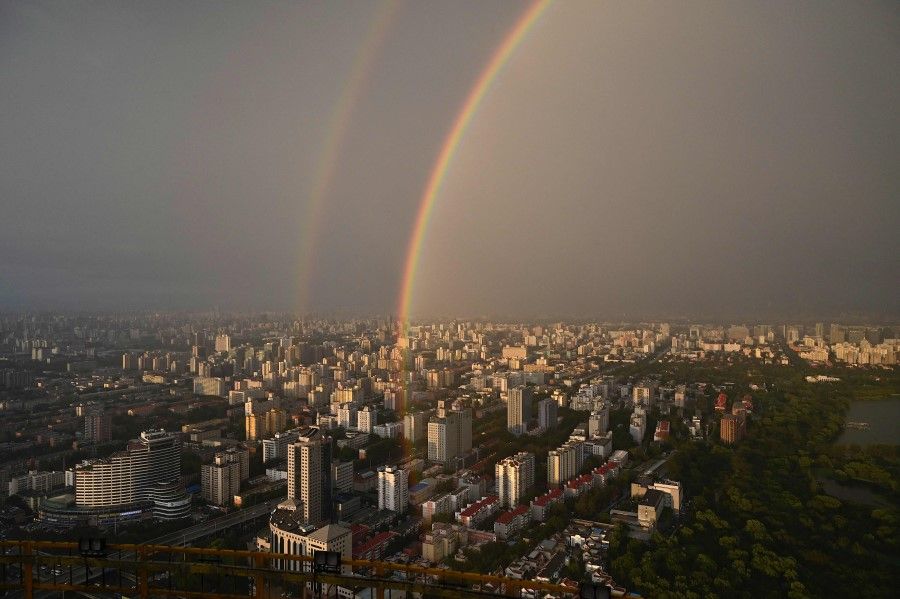
Currently, it is not clear whether Li's commentary reflects the official stand. However, netizens have pointed out that several state media outlets have shared the piece, which shows that the comments do not go against the official narrative, which in turn shows that the authorities mean business.
Netizens who disagree with the commentary have left comments such as "I got chills down my back after reading this"; "trying to maintain the status quo through 'change'"; "reform and opening up is change". On the other hand, supporters expressed that "this is the positive energy needed now" and "the pollution has been around too long, we quietly await the day the air will clear".
If the article writer's analysis is correct, the authorities' regulation of the entertainment industry and the capital that lies behind it is just the tip of the iceberg, which means that this deep change across the economic, financial, cultural and political sectors will last for some time. The whole of society might undergo baptism in a return to the fundamentals of socialism, in the name of the people.
Related: China's crackdown on cryptocurrencies: Trade-offs between stability and innovation | China's tutoring industry finding new ways to survive after government crackdown | China's tutoring crackdown: It is not a random act by the Chinese government | China's tutoring crackdown: Is the Chinese government prepared for its consequences? | China's crackdown on cryptocurrencies: Bitcoin miners eyeing overseas ventures | Destroying independent thinkers: Why China's tutoring industry needs strong intervention | Building a moral and prosperous Chinese society: Prelude to a social revolution in China? | 'Winner takes all' no more: China is ready to build the socialist regulatory state
